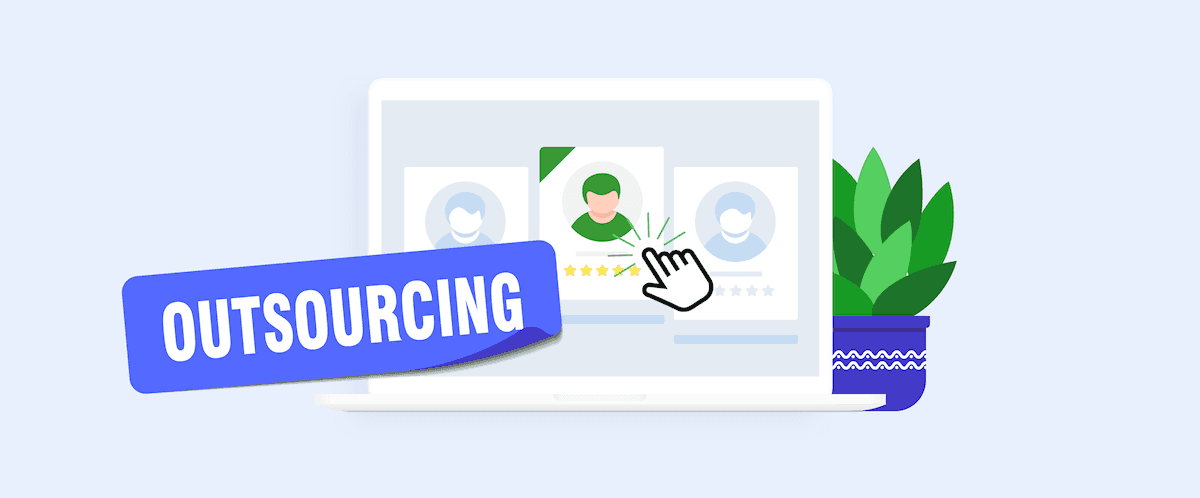How to Grow a Successful Law Firm
Explore essential strategies to expand your law firm and stand out in the competitive legal landscape. This guide provides practical tips on improving efficiency, building strong networks, and utilizing digital marketing for long-term success.
Starting and running a law firm is a challenge. It's even more challenging to grow a law firm, especially in today's information-saturated and fast-paced legal industry.
Law firm business development poses several interrelated challenges. Once a law firm is established, acquiring new clients, competing with other law offices, and streamlining administrative tasks to make time to focus on legal practice can quickly become overwhelming. With so much at stake, it’s not unusual for a growing law office to find itself floundering or stagnating.
Whether you’re looking for potential clients, focused on revenue growth, adding an office manager, or expanding your practice areas, law firm growth is a challenge you can meet. Here, we walk you step by step through the process.
Create Efficient Systems for Better Law Firm Growth

Can you run a law firm full-time while also practicing law full-time? For most attorneys, the answer is no — or at best, it’s “yes, but I can’t do either one well.”
To grow your law firm while engaged in legal practice, efficiency is essential. Take a close look at all your internal processes: client intake, discovery, depositions, expert witness retention, litigation, and related tasks. At each stage, ask two questions:
- Are you and your team focused on the right things?
- Are you delegating the appropriate tasks to the appropriate people?
Look beyond the walls of your law firm when you delegate. External service providers can take some of these tasks off your plate, freeing up your attorneys and staff to focus on more important work.
Can’t Hire? Outsource for Law Firm Growth

Not every new case or challenge requires a full-time hire. When you need specialized assistance, seek skilled resources via online platforms or reach out to a service provider like Expert Institute to meet your needs.
Online platforms and social media sites like LinkedIn can provide access to freelance attorneys, paralegals, and certain experts like nurses. A legal recruiter can also help connect you to contract attorneys with the expertise you require for a specialized matter.
When you require assistance with a complex technical, medical, or scientific case, work with Expert Institute. Our offerings include:
- Expert search: Our team of researchers handle expert outreach and recruiting, so you can focus on your cases.
- Medical Chronologies: We use AI to parse medical documents and organize them in an easily digestible way.
- Medical Record Reviews: Our on-demand MDs help you evaluate cases for merit and hone in on winning strategies.
- Expert Radar: Need to do due diligence on an expert? We handle the research for you.
By outsourcing, you can support sustainable law office growth.
When to Hire the People Your Growing Law Firm Needs

It may be time to hire someone to join your legal team if:
- Clients are raising concerns about missed calls, lack of communication, or difficultly scheduling visits or onboarding.
- You and your existing staff are overwhelmed, missing more days of work than usual, or dropping the ball.
- You turn down new clients or opportunities because you cannot fit them into your schedule - and you can't delegate anything to anyone else on your team.
- It no longer makes sense to outsource certain tasks. For instance, your growth in a certain practice area now offers enough work for a full-time attorney.
- Your attorneys are doing work suited for paralegals, office managers, or administrative assistants.
These are signs it’s time to hire someone to support your law firm’s growth. Despite the struggles they pose, these signs indicate healthy business development and a need to think long-term.
Leverage Technology to Streamline Law Firm Administrative Tasks

Today’s technologies make it easier than ever to streamline a number of law firm administrative tasks. Available tools include case management platforms, electronic payment systems, cloud-based document management tools, and even virtual receptionists.
Case Management Platforms
Case management platforms like Filevine or Clio consolidate many administrative tasks for a law practice in one location, including:
- Intake management: Streamline client onboarding by using case management platforms to collect initial information. Most platforms have tools that can identify missing or incorrect information. These tools help to reduce errors and save time in the long run.
- Matter management: Standardize and automate workflows to help ensure documents are generated correctly and on time. Free up your attorneys to focus on legal deliverables and your staff to focus on essential support needs.
- Timekeeping and billing: Today’s case management platforms often incorporate timekeeping and billing tools - no more switching between screens to record your billable hours.
- Document management. Keep case-related documents in one secure digital location, allowing for access and efficient management.
Some case management platforms offer reporting features, allowing you to see time spent on certain matters and other data points. Those with client portals also make it easier to maintain communication with clients as a matter progresses. These tools keep everyone on the same “digital page,” making it easier to grow a law firm by practicing law.
Other Digital Tools for Growing Your Legal Practice
Electronic payment systems, cloud-based document management, and virtual receptionists can also help a growing law firm.
Electronic payment systems handle budgeting, payments, and invoices digitally, reducing paper clutter and minimizing the risk of errors. Send and receive money quickly and securely, with a clear audit trail so you track every cent.
Cloud-based document management systems allow attorneys and staff to access any document exactly when and where it is needed. Popular options include Google Docs, Dropbox, and Box; some case management systems also offer document management solutions. Review the security and access features of each system before choosing one that fits your legal practice.
Finally, a virtual receptionist can be a valuable addition to your team. Virtual receptionist services offer live call answering, often at all hours. Virtual receptionists can also direct calls to the correct staff member, take messages, perform intake tasks, schedule client consultations, and handle other matters. A virtual receptionist helps ensure that you never miss a call.
Using AI Judiciously for Law Firm Building
Artificial intelligence (AI) cannot yet replace attorneys or their staff. Large language models cannot yet be relied upon to produce cogent, accurately cited legal arguments. Yet AI still has a role to play in streamlining law firm administrative tasks.
For instance, AI can help you identify information quickly and get up to speed on new topics. Use AI judiciously to help your business development.
Never Miss an Opportunity to Reach New Clients

Decades ago, most potential clients looked for attorneys during business hours. Today, the Web makes it easy for clients to search for legal help at times that fit best with their own schedules - whether that’s in the evening after dinner or at 3 a.m. while worrying about their situation.
To connect with these potential clients, diversify their opportunities to reach you. Work with a 24/7 answering service to ensure clients can speak to someone and schedule a consultation. Online chat tools can also help clients communicate with your law firm anywhere, in any format. If running ads on nights and weekends or leaning into social media are part of your business development and marketing strategy, 24/7 client communications are a must.
Legal Practice Networking 101

By forming relationships with lawyers in other specialties, you can make sure that your clients get the best possible help for issues outside your expertise. Similarly, those lawyers are more likely to refer clients to you when they encounter cases that align with your specialization, such as personal injury. This reciprocal arrangement enhances the service provided to clients and increases business for all parties involved through trusted referrals.
How to build your legal practice network:
- Attend industry conferences and chat with fellow attorneys.
- Reach out to your law school. Many have robust alumni networks.
- Organize business development events, including networking lunches or dinners.
- Participate in non-profit activities, especially those not directly related to your practice area.
- When you cannot take a case, always make a referral to another lawyer.
Clients tend to assume that attorneys know one another - and that all lawyers know which of their professional colleagues to recommend for certain issues. Build a strong network, and you’ll receive more business and become a trusted source of referrals for existing clients.
Keep in Touch With Your Client Base to Build a Successful Law Firm

Professional networking with other attorneys can help you grow a law firm. So can maintaining connections with your clients.
Contact past clients periodically to check in and see how they’re doing, especially in the weeks or months following the resolution of a matter. Past clients may have questions they haven’t yet asked or they may know someone who could also use your assistance.
Don’t hesitate to ask satisfied clients for referrals. Clients that are happy with the outcome of their matter are more likely to recommend their friends and family to you. By sending a note or a brief phone call occasionally, you’ll keep your law firm on their minds when they meet someone who may need assistance with their legal issues.
Focus on Digital Marketing and Branding

Digital marketing is one of the fastest ways to scale any business, including a law firm. While digital marketing and branding require effort to launch, they are also relatively easy to maintain.
Tactics for Law Firm Marketing and Branding Success
To optimize your growing legal practice’s digital marketing and branding efforts:
Create a consistent brand image that embodies the ethos of your firm. Start by checking out peers’ websites. Which combinations of colors, fonts, and layouts speak to your professional approach? Which don’t represent you at all? Gather inspiration to build your own set of brand-specific colors, logos, images, and fonts, based on what works.
Engage search engine optimization (SEO) best practices. SEO best practices engage with the reality that most new clients will find you through an online search. SEO adapts your digital efforts to better connect with search engines and through them with new clients.
Some SEO best practices to include from the start:
- Use content marketing to help you rank in search engines like Google and Bing. Tools like SEMrush and Spyfu can help you research relevant keywords and topics for your target client.
- Create both evergreen and topical blog and newsletter content. Evergreen content might cover topics like “what to do after a car accident” or “how divorce mediation works.” Topical content includes successful past cases, especially those with large verdicts or settlements. It also includes awards won by your attorneys or staff and charity or other notable events involving your law firm.
- Use local SEO Some keys to local SEO are keeping business listings for your practice locations up to date. You should leverage tools like MOZ Local to keep listings accurate and in sync. You should also stay active on local platforms — respond to reviews, and post updates to Google My Business.
Make your website easy to use. Mobile-friendly design, ease of navigation, and simple forms all help generate leads online.
Consider starting a newsletter. Collect clients’ email addresses and create a digital newsletter. You can repurpose blog content as newsletter articles.
Use social media to establish a presence and encourage lead generation. Social media is a powerful lead generation tool when it’s updated regularly. Clients searching for your firm see your updates, gain value from information you share, and understand your law firm is an active part of their community. Lean into of-the-moment platforms like TikTok, which are becoming major search engines for younger generations.
Invest in online advertising. Pay per click (PPC) advertising on search engines or social media can connect you to clients. As the name implies, you only pay for these ads when a prospective client uses one to reach your website.
Gather client reviews on social media and legal directories. Google, Facebook, Yelp, and legal directories are essential sources for reviews. They build prospective clients’ trust in your business. And a few negative reviews may actually help your credibility — studies indicate that when a business has only 5-star reviews, 44 percent of people suspect those reviews are fake.
Respond constructively to negative reviews. Resist the urge to argue or defend against negative reviews. Instead, offer a concrete way to help address the issue.
When to Outsource Digital Efforts to Grow Your Legal Practice
If the above tasks sound like a full-time job, that’s because they can be. To avoid overloading your existing staff with social media management or SEO efforts, consider working with a marketing agency or website development company that specializes in law firm digital marketing efforts.
When looking for a legal marketing agency:
- Look for experts in the legal industry. These teams will offer content and efforts that align with local legal practice standards for advertising, and they’ll also understand exactly what your prospective clients look for in legal services.
- Consider an agency that specializes in your practice area and market. To stand out among competing firms, choose an agency that understands your specific practice area and geographic region. Your agency should be familiar with your top competitors and be able to articulate a clear vision for helping your firm stand out.
- Select an agency with a clear project management approach. An agency that clearly communicates its process, from initial conversations to how webpages go live, is one that will offer the support you need when you want to make changes or continue a promising marketing effort.
- Does the agency support your ethos? An agency that shares similar values and viewpoints regarding legal and professional practice is one that will communicate your ethos and service authentically and consistently.
Consider outsourcing digital marketing and branding to a specialized agency if keeping the work in-house is overwhelming your teams and hiring someone to handle it full-time isn’t the right fit for your law firm.
Building a successful law firm requires attention both to legal practice and to growing your law firm business. Office managers, law firm managers, attorneys, paralegals, and other staff all play a key role in both the growth and sustainability of a legal practice. By implementing the right tools and steps, you can attract potential clients and maintain consistent, stable long-term law firm growth.
About the author
Michael Morgenstern
Michael is Senior Vice President of Marketing at The Expert Institute. Michael oversees every aspect of The Expert Institute’s marketing strategy including SEO, PPC, marketing automation, email marketing, content development, analytics, and branding.
A Sample Voir Dire: How To Qualify An Expert Witness
Download free white paperChallenging Opposing Experts: Advanced Research Techniques
Download free white paperCross Examining Expert Witnesses: The Ultimate Guide
Download free white paper
Subscribe to our newsletter
Join our newsletter to stay up to date on legal news, insights and product updates from Expert Institute.



